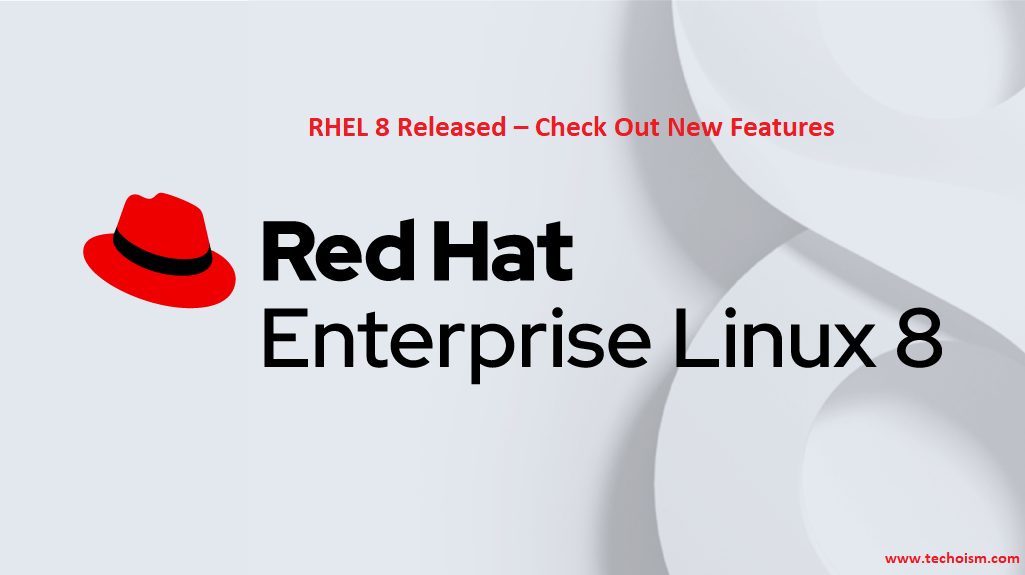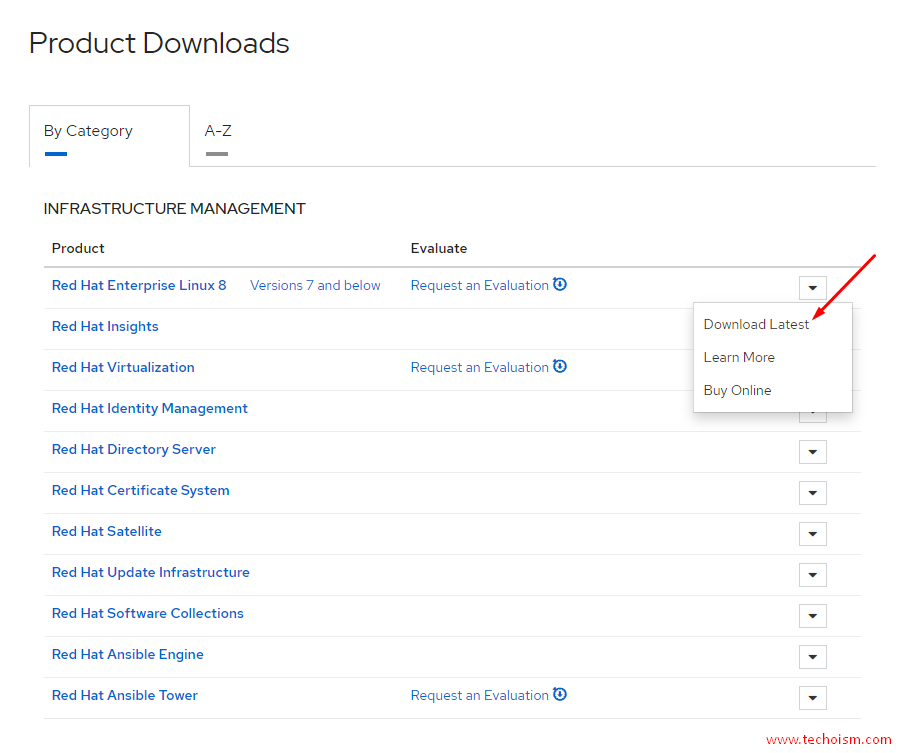RHEL 8 Released – Check Out New Features
Red Hat Enterprise Linux 8 (RHEL 8) is now released for productions use. Red Hat Enterprise Linux (RHEL) 8 official announced on May 7, 2019. RHEL 8 kernel version is now 4.18. It is based on fedora 28 distribution Use and learns new features of RHEL 8.
You can download RHEL 8 from its official site, by clicking “Download Latest”
The New Feature in RHEL 8
Cockpit:
The cockpit is available in RHEL 8 default repository. The Cockpit is a free and open-source Web-based GUI tool through which sysadmins can monitor and manage their Linux servers, it can also be used to manage networking and storage on servers, containers, virtual machines and inspections of system and application’s logs. You can use ssh to manage your server or use the web interface at any time.
Kernel:
Linux kernel version in RHEL 8 is now 4.18 is a more stable, reliable, secure and consistent foundation across hybrid cloud and Data Center deployments with tools needed to support all levels of workloads. RHEL 7 can support maximum physical memory up to 64TB but now RHEL 8 can support physical memory up to 4PB.
Databases:
RHEL 8 provide the databases Like MariaDB 10.3, MySQL 8.0, PostgreSQL 9.6, PostgreSQL 10.
New versions:
Few software versions available with RHEL 8 are Python 3.6, Nginx 1.14, Apache 2.4.35, PHP 7.2, Ruby 2.5, Perl 5.26 and Databases like MariaDB 10.3, MySQL 8.0, PostgreSQL 10, PostgreSQL 9.6, and Redis 4.0.
Networking:
RHEL8 supports more efficient Linux networking in containers through IPVLAN. It also includes a new TCP/IP stack with Bandwidth and Round-trip propagation time (BBR) congestion control, which enables higher performance & minimized latency
Security:
Red Hat Enterprise Linux 8 Beta has been supporting OpenSSL 1.1.1 and TLS 1.3. Red Hat is enabling server applications on the platform to use the latest standards for cryptographic protection of customer data. The administrator can easily switch between multiple modes likes default, legacy future and fips using -crypto-policies command. System-wide cryptographic policies also include which helps to manage cryptographic compliance from a single prompt.
Software Management:
The software is now managed by the new version of YUM. Which is based on DNF in Fedora. RPM command validates the entire package prior to installation using the hash. DNF is rolling out behind YUM. It provides fast performances and less installed dependencies.
Networking:
RHEL8 supports more efficient Linux networking in containers through IPVLAN. It also includes a new TCP/IP stack with Bandwidth and Round-trip propagation time (BBR) congestion control, which enables higher performance & minimized latency. We can convert existing iptables or ip6tables rules into nftables. nftables support advantages like it offer a single framework for packet filtering.
Shells and command-line tools:
nobody user replaced by nfsnobody with the user and group ID of 65534 in RHEL 8.
Default Display Server:
The default desktop environment has been upgraded to Gnome33.28. In RHEL 8. Its support new features like on-screen keyboard, extended device support, improved multi-monitor support, enhanced User interface.
Virtualization:
RHEL 8 now comes with qemu-KVM v2.12. Provides few enhancements like UEFI guest boot, vCPU hot plug and hot unplug, guest I/O threading. We can be managed by default, through the cockpit.
Enjoy it!


